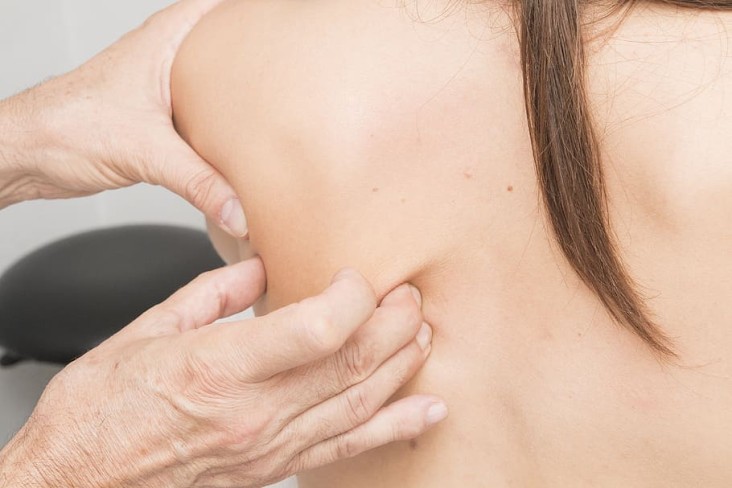Chronic shoulder pain treatment often involves soothing inflammation, swelling, redness and strengthening muscles. Here are several ways you can take care of and relieve your shoulder pain.
- Anti-inflammatory medication
Nonsteroidal anti-inflammatory medications relieve pain and lower inflammation. Reducing inflammation is important in some of the shoulder injuries.
- Compression
Wrap the shoulder with an elastic medical bandage to reduce swelling and pain. Wrap it snugly but not too tight. You don’t want to block blood flow. If your hand begins to feel numb, or turn blue, loosen the compression bandage.
- Heat therapy
Heat helps to relax muscles tension and soothe a stiff shoulder. It can help with muscle pain in the shoulder. Use a heated gel pack, heating pad or a hot water bottle.
- Activity modification
It reduces shoulder pain with specific recommendations and based upon the underlying diagnosis. Reduction or avoidance of overhead activity is the mainstay of chronic shoulder pain treatment because this avoids the painful arc. Avoiding heavy loading can also help with the pain. Certain overhead activities can precipitate instability symptoms. Cross-body shoulder adduction, such as the motion performed in the golf swing or while weight lifting, should be limited because it can recreate painful joint.
- Muscle relaxants
Muscle relaxants may help treat pain if you have tense muscle or spasms around the shoulder joint. You will need a prescription from your doctor for muscle relaxants.
Remember that they cause drowsiness and shouldn’t be taken if you’re driving or operating machinery.
- Physical therapy
Physical therapy confines a large range of chronic shoulder pain treatment. There are therapeutic modalities designed to alleviate pain directly and stretching and strengthening exercises intended to relieve pain by improving overall shoulder function. The type and focus of physical therapy depends on the underlying condition. Little evidence exists for the use of therapeutic modalities alone. A recent review showed that stretching and strengthening provide improved short-term recovery and long-term function in patients with shoulder pain especially with rotator cuff disease. When the patient actively participates in the rehabilitation process on a daily basis and the underlying diagnosis is known, the success of physical therapy is optimal.
- Injections
If patients have a poor response to initial chronic shoulder pain treatment then corticosteroid injections combined with a local anesthetic can be administered. The injection needs to be directed into the affected area where they start reducing joint’s inflammation.
- Surgery
Although most chronic shoulder pain conditions get better with other treatments but there are some conditions which require surgery as chronic shoulder pain treatment. These include; rotator cuff injuries, glenohumeral osteoarthritis, glenohumeral joint instability, and adhesive capsulitis.
Pain management institute works to cure acute and chronic long-term pain to resume a normal lifestyle. PMI has provided many treatments like stem cell therapy and many others.
For more details call on 815.412.6166

